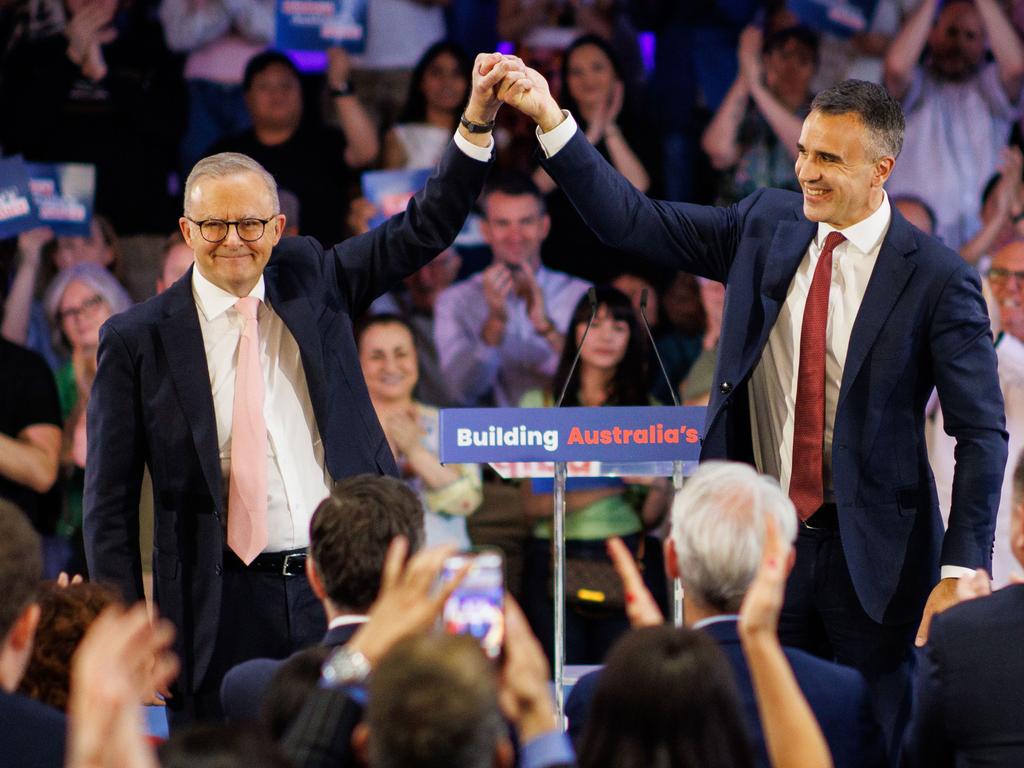Problem for arts academics is universities don’t do much of a job promoting value of courses

As last week’s US election demonstrated, taxpayers do not respond well to being told what to do by their self-appointed intellectual betters.
It’s a lesson advocates don’t appear to get. The government has just gifted three million graduates $16bn by abolishing about 29 per cent of their study debt. Sandbags full of money might protect Labor seats with lots of young voters against a Green tide. But it also demonstrates to recent graduates, and university staff, that the government values higher education so much that it is happy to add to the public debt burden to support it. Yet within hours of Anthony Albanese’s announcement, university advocates came over all Oliver Twist and wanted more.
There were calls for increased government spending, to reduce what students pay for arts degrees – which with law and business are the most expensive. They will cost just under $17,000 per annum as of next year, under a 2019 policy of the previous coalition government.
The general argument is that many arts students are from disadvantaged backgrounds and their degrees don’t lead to high-paying jobs – which makes an obvious, if unintended case against studying humanities.

Nor did anybody create the cover the government will need if it wants to cut students’ share of their course costs, by explaining the importance of the humanities to people who prefer their taxes to subsidise nursing, teaching and medicine courses.
“Universities have to come up with a value proposition for studying arts,” says veteran higher education marketing consultant Tim Winkler.
Instead, specific complaints about the high cost of humanities focus on job losses among academics which are already happening, attributed by managements to reduced student demand. Falling numbers might be due to the cost of degrees, but new humanities and social science enrolments were down 6 per cent last year on 2019. It was a 10-year low – and it occurred before the high fees policy started. And even though there are still 300,000 humanities students, job cuts in humanities departments demonstrate managements are not expecting growth.
The problem for arts academics is their universities don’t do much of a job promoting their courses, leaving them to argue they should receive more funding from government to do more of what they have always done, because they have always done it. But a humanities degree not tied to an occupational outcome is a hard sell now that universities are more about career training than studying classic 19th novels, or 21st century TikTok content.
The University of Wollongong, for example, proposes scaling back history courses. This should not be seen as a reflection on their content – they look largely woke-free, sensible and straightforward subjects not that different to what would have been taught a generation ago. History, however, is not as popular as it once was. Martin Crotty and Paul Sendziuk report enrolments dropped 20 per cent between 2016 and 2022.
The challenge Winkler says is to update the syllabus.
“The term ‘arts degree’ is very broad – universities need to focus on marketing subjects students want – politics, digital comms and literacy, as examples.”


As education analyst Andrew Norton puts it: “English literature and history both involve time-consuming reading, which counts against them in the smartphone and social media era.”
It need not be thus. Winkler says there is substance in the case for the humanities, that employers love graduates with “soft skills” – emotional intelligence and the ability to think and communicate effectively – but universities don’t substantiate how studying humanities is the basis for multiple careers.
“It’s not that hard to grow the student base if universities know what they are selling. They need to do more than say to graduates ‘you have soft skills that somebody, somewhere will want.’ ”
The humanities lobbies need to make the same sells to the community – but probably won’t. There’s a problem with the “soft skills” argument for studying arts – why not teach the skills specifically and ditch the content knowledge that students are required to learn. Academics who have spent their lives researching and teaching literature and linguistics, media and music believe in the moral importance of their work and are unlikely to accept defeat and do this. But the brutal truth is that taxpayers will want a better case for stumping up more cash for degrees that do not qualify anybody for anything specific, other than being an academic.
Reducing the range of literature, history and philosophy courses in the system is not great for the national understanding of why the world is as it is. I received a shock the other week when my physio said he had watched Christopher Nolan’s film Dunkirk but wondered why the British had ever fought the Germans in France.
Even so, more money for humanities is a hard sell among the mass of voters who doubt the world will end if students don’t read Middlemarch, or aren’t across new thinking in Taylor Swift studies (snort not, there are scholarly seminars already).
The big lesson university lobbies need to learn is they must make cases for more money, at the inevitable cost of less for other public expenditure, in terms that make sense to voters.





Demanding taxpayers increase their contribution to the cost of humanities degrees, which university lobbyists want, is a hard sell.